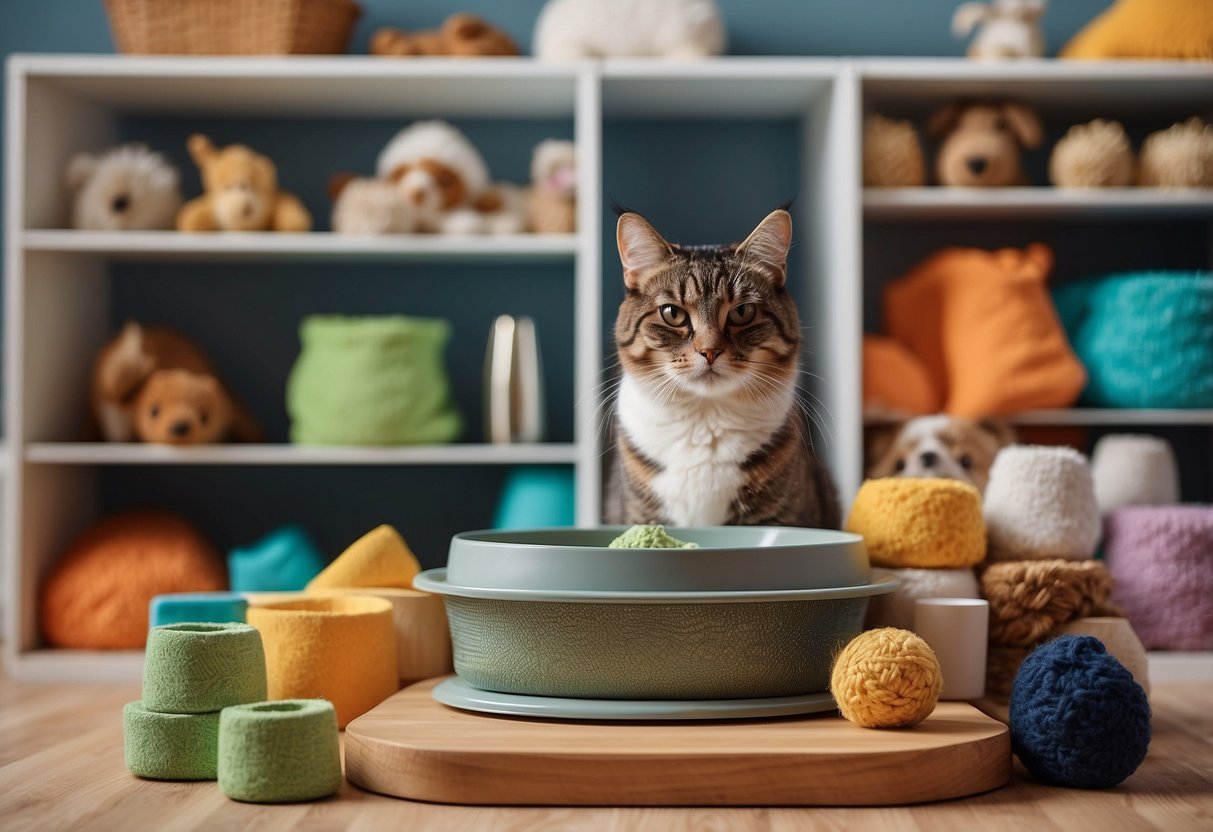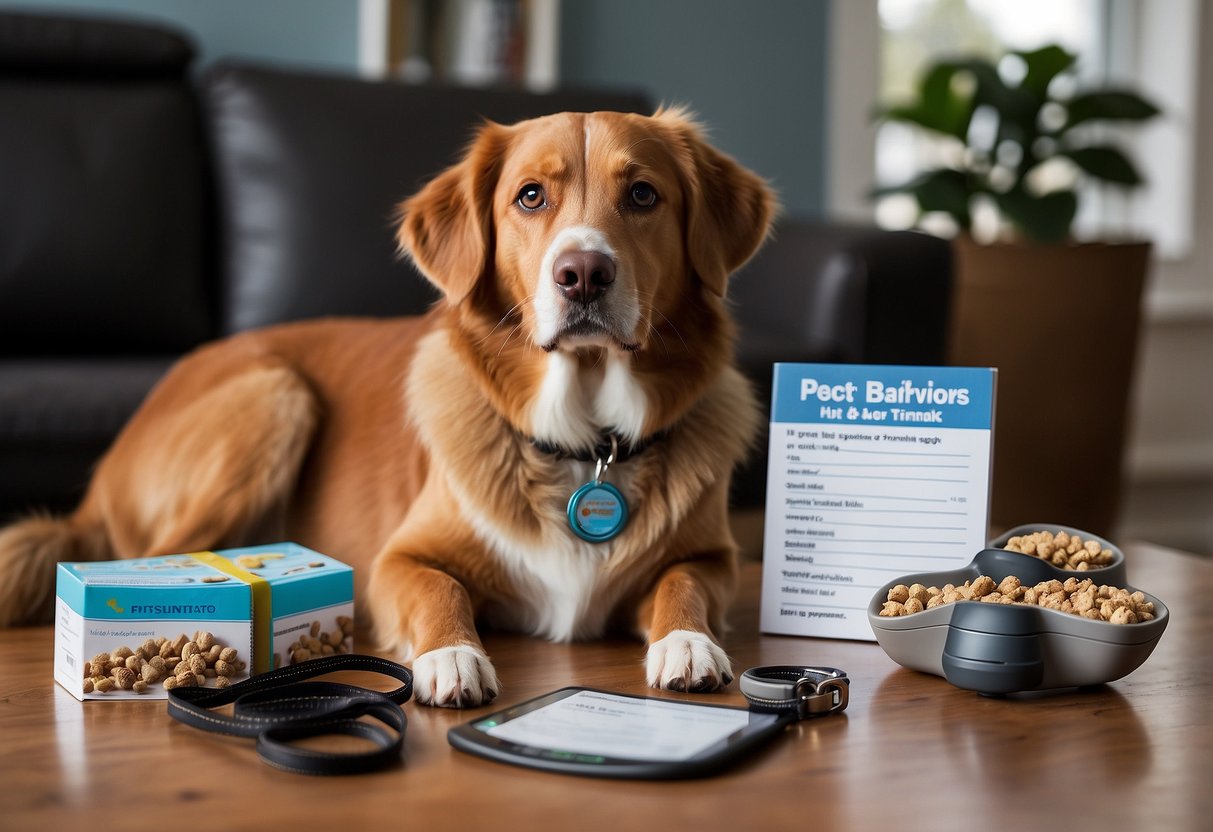
Waste Management Solutions
Proper waste management is essential to maintain both hygiene and cleanliness in your home. For cats, providing a suitable litter box and regularly scooping it helps control odors and keeps the area sanitary. Choosing the right litter type can also make a big difference in odor control and ease of cleaning.
For dogs, using poop bags to pick up waste during walks ensures public areas stay clean. Training your dog to use a specific area in your yard can simplify cleanup. For small animals like rabbits or guinea pigs, regularly cleaning their cages and providing fresh bedding maintains a healthy living environment.
Behavior and Training

Ensuring a pet behaves appropriately and learns commands requires key items like training treats and behavioral aids to guide their actions and responses.
Training Treats
Using training treats can effectively reinforce positive behavior. Treats should be small and given immediately when a desired behavior is displayed. Opt for high-value treats that are different from their everyday food to maintain their interest.
Different treats may work better for different pets. For instance, some dogs may prefer cheese or chicken, while cats might respond better to soft fish-based treats. Consistency is crucial. Regular practice with treats helps pets understand what is expected of them.
Training sessions should be short, around 5-10 minutes, focusing on one command or behavior at a time. Rewarding progressively when the pet shows improvement can build strong, positive habits.
Behavioral Aids
Behavioral aids are tools that can help address specific issues such as anxiety or excessive barking. Items like calming collars that release pheromones can soothe a stressed pet. Toys that require problem-solving can keep pets mentally stimulated and reduce undesirable behavior caused by boredom.
Bitter sprays can deter pets from chewing on furniture or other unwanted items. Crate training can also be beneficial. When used correctly, a crate provides a safe space for the pet and can help in housebreaking.
For pets with severe behavioral issues, consulting a professional trainer or a veterinarian may be necessary. Behavioral aids should complement training efforts rather than replace them. Consistency and patience are key to effective use of these tools.
Exercise and Play
Exercise and play are crucial for a pet’s overall well-being. This involves engaging them with toys and puzzles to stimulate their minds, and using appropriate leashes and collars to ensure safe outdoor activities.
Toys and Puzzles
Pets, especially dogs and cats, thrive on interactive play. Toys and puzzles can help meet their physical and mental needs. For dogs, chew toys, balls, and tug ropes are great. Cats often enjoy feather wands, laser pointers, and small plush toys. Puzzles like treat-dispensing toys provide mental stimulation, helping reduce boredom and destructive behavior.
Variety is key. Rotate toys to keep pets interested. When selecting toys, ensure they are made from safe, non-toxic materials. Supervise playtime to prevent accidents. Engaging in play strengthens the bond between pet and owner, making it an essential part of pet care.



